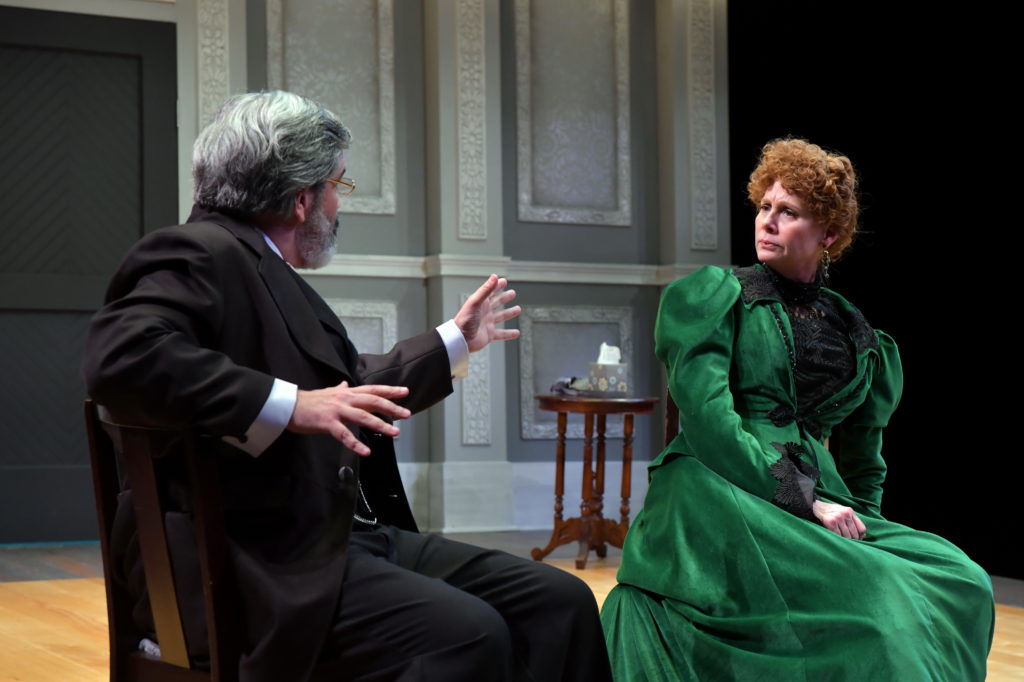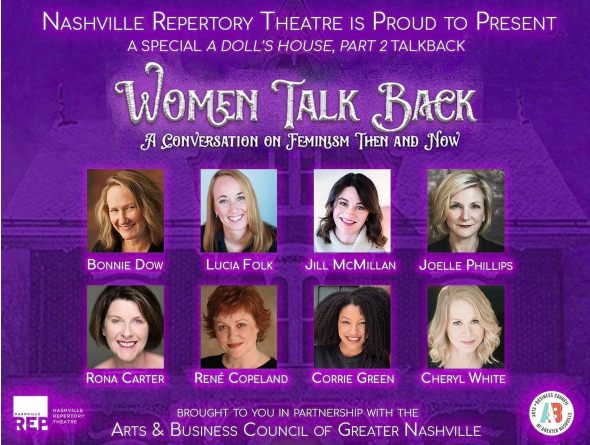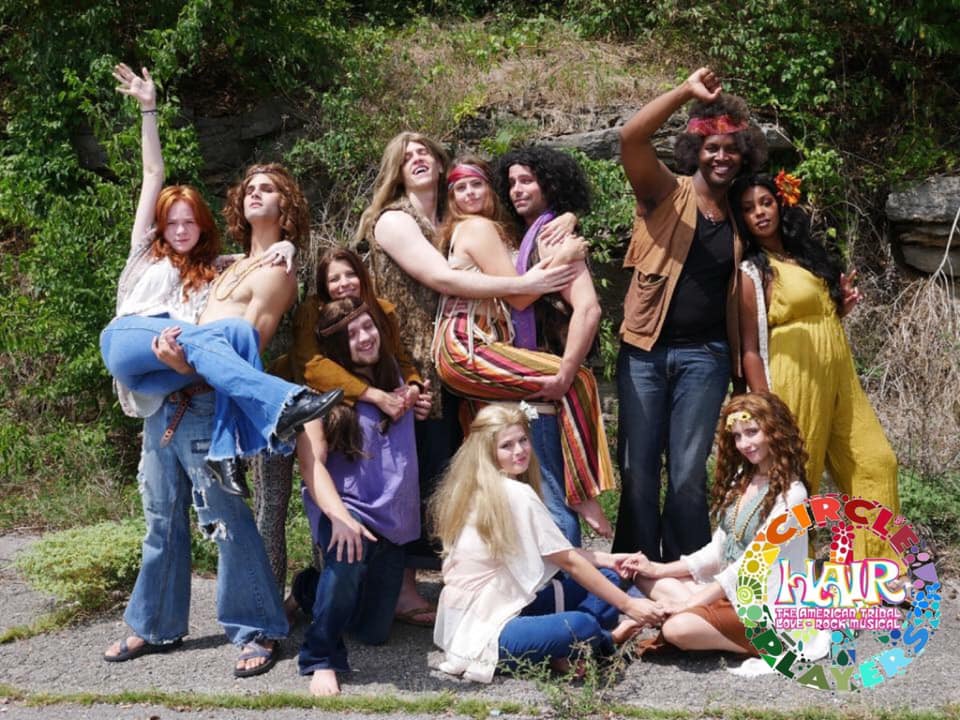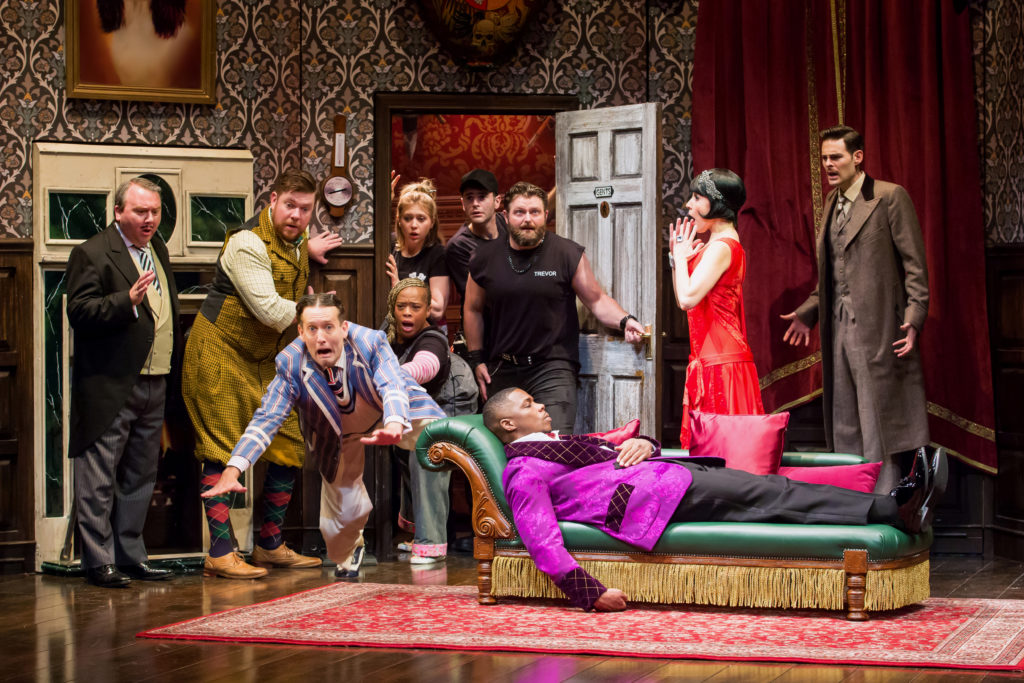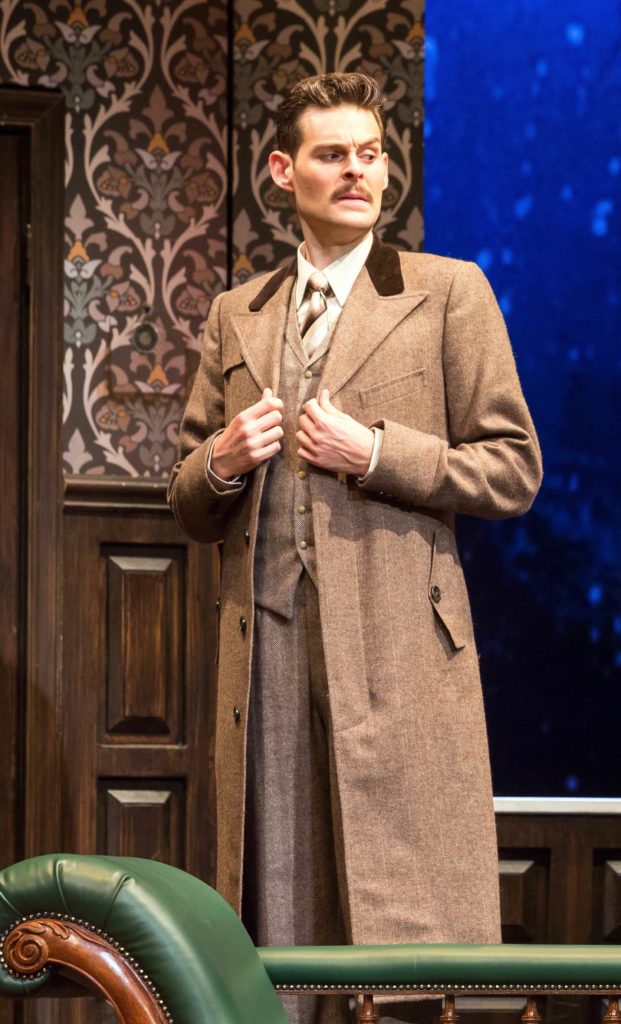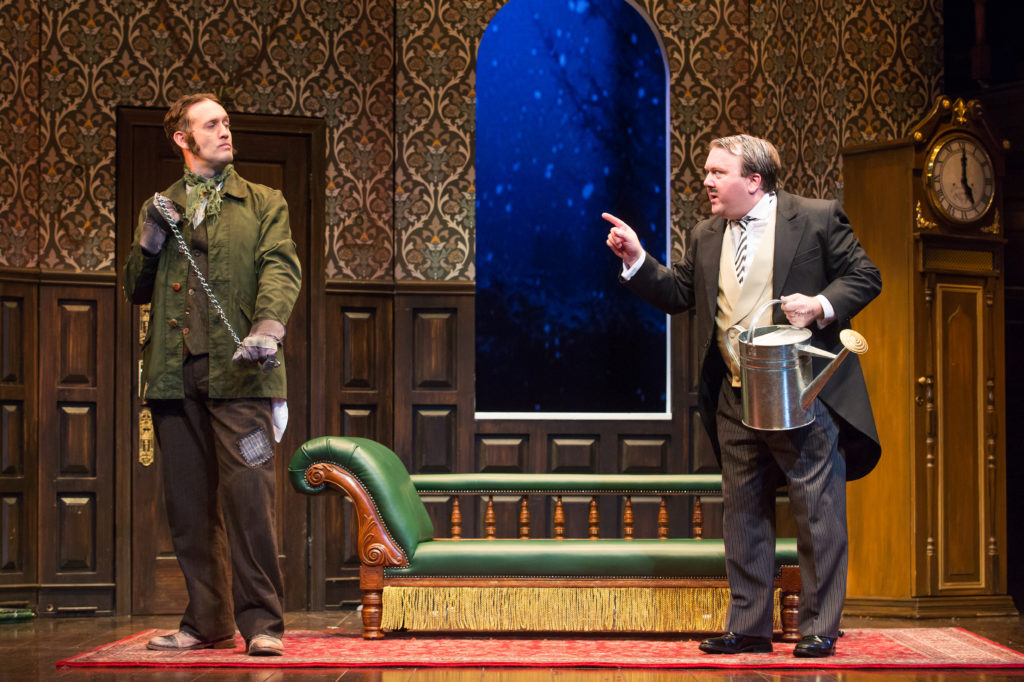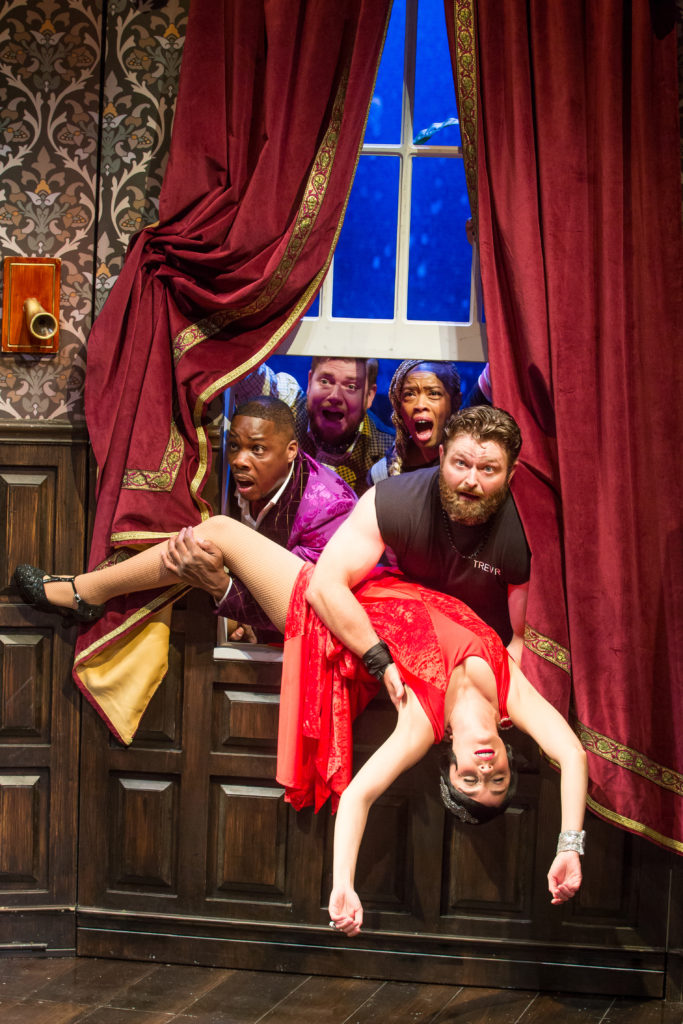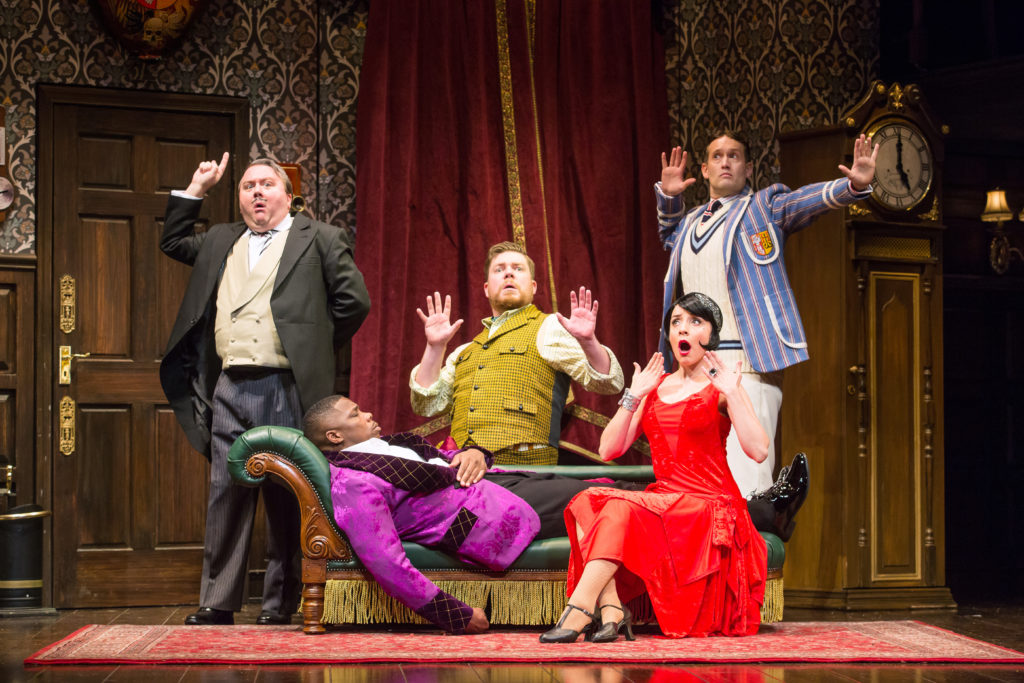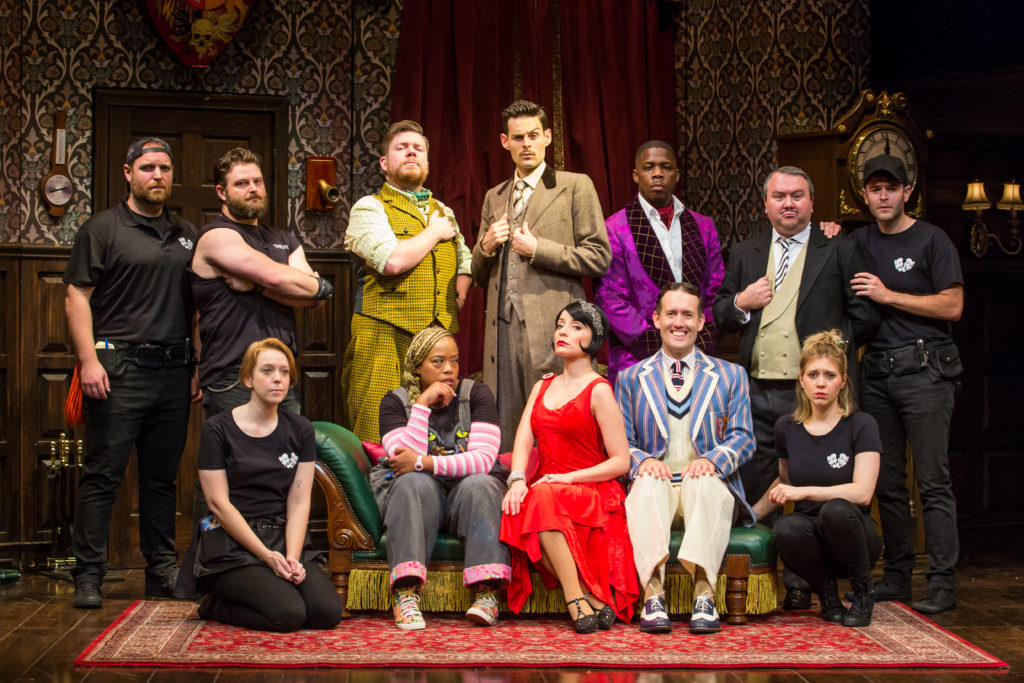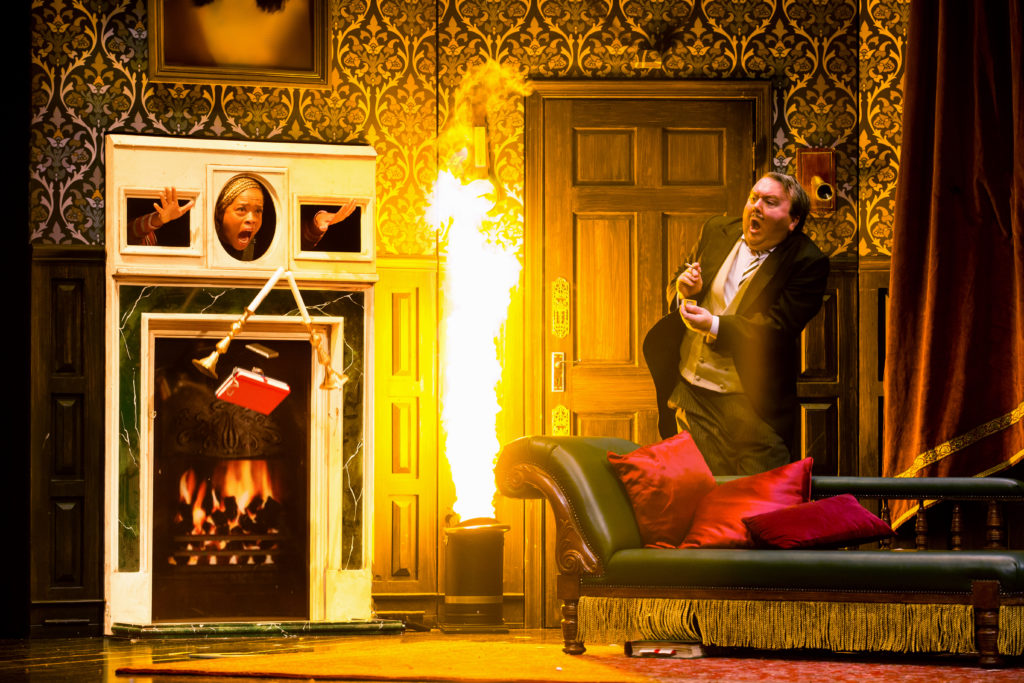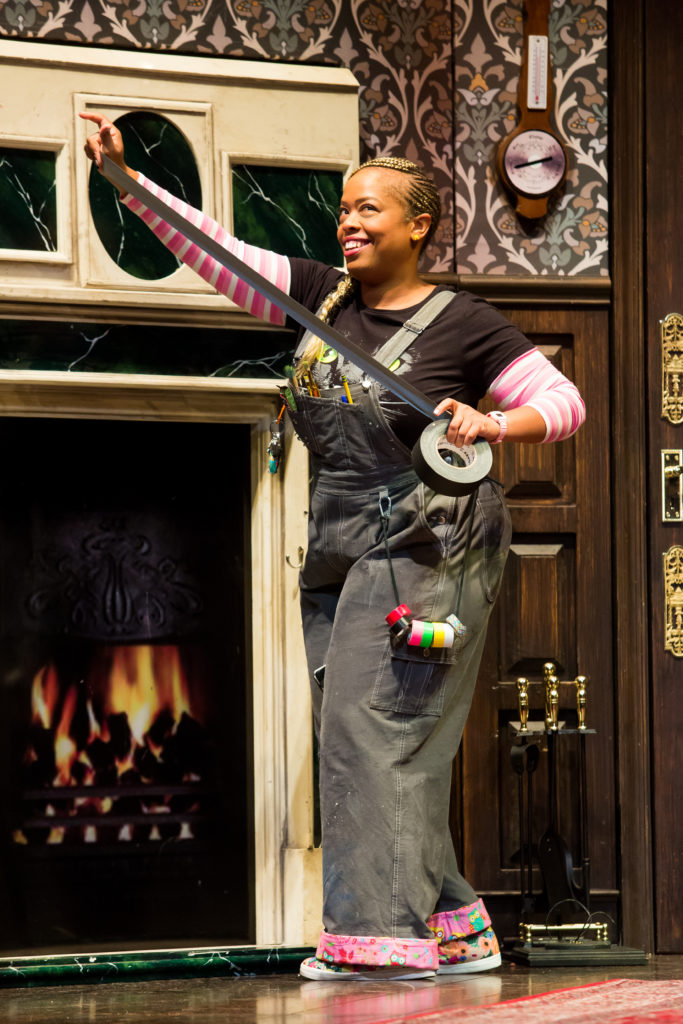
Having made my parents stand in line at the Belle Meade Theatre back in the spring of 1977 to be among the first of my friends to see the original Star Wars movie, you better believe I eagerly sat inches away from my 13″ black and white TV in my bedroom later that next year to tune into The Star Wars Holiday Special. You also better believe I totally geeked out when I heard Pipeline-Collective‘s Producing Artistic Director David Ian Lee was assembling some of Nashville’s favorite theatre folk to recreate the classic, beloved and yes, oft ridiculed holiday special LIVE on stage!
A long time ago in a galaxy far, far away….OK, OK,…last week–by way of email–I I had the chance to pose a few questions to Lee for the latest installment t of my recurring interview feature, Rapid Fire as he and his cast prepared to go where no man has gone before….Oh, wait! Wrong franchise…as he and some of my theatre crushes take to The Factory at Franklin‘s Jamison Hall on Wednesday, December 11 to present a one-night-only staged reading of The Star Wars Holiday Special benefitting Make-A-Wish.
RAPID IFIRE WITH THE STAR WARS HOLIDAY SPECIAL LIVE DIRECTOR, DAVID IAN LEE
JHP: I’m old enough to have actually tuned into the one and only televised broadcast of the original Star Wars Holiday Special. When did you first become aware of it?
DAVID IAN LEE: Growing up you’d hear whispers about the special, but the whole thing sounded like a fever dream or like some kind of prank. In the late 90s – as the Internet became a thing and George Lucas started to talk about making Episodes I, II, and III –clips and images began to circulate, and any evidence that the special had once existed was like catnip. In 2003 I bought a bootleg on eBay, and when the package arrived I felt I’d obtained explicit contraband. I took a day off of work to watch it, I was so pumped… and then I watched it. Whatever you’ve heard about The Star Wars Holiday Special – however you might imagine it in your mind – it’s like the Grand Canyon or The Matrix: You have to see it for yourself.
JHP: Where did the idea come from to present a staged reading of the special?
DAVID IAN LEE: My wife, Karen also happens to be my co-Producing Artistic Director, which means that we talk a lot about Pipeline and also a lot about Star Wars; or, maybe more accurately, she listens to me talk a lot about Star Wars. I call myself a Completist in that I watch and I love it all: The original films, the prequels, the Ewok movies, every animated series, and, yes, even the Holiday Special. About a year ago I got my hands on a copy of an original shooting script, and an idea began to form that we might adapt the text into a staged reading: We’d retain as much dialogue as possible, translate descriptive action into narration, and substitute any copy written music with more earthly holiday songs. And we’d lean into the camp. I’d tell people about my half-ironic passion project, and I was encouraged that responses ranged from enthusiastic to emphatic that we had to do this. Karen wasn’t sold right away; the Holiday Special is an obscure bit of ephemera for folks who haven’t seen it, and for people who have… Well, they’ve seen it. While I was away on a job this summer I spent my downtime adapting the shooting script, and when I got home we had a reading of the piece in our living room with a bunch of friends and collaborators. Everyone’s sides hurt from laughing, and with that the die was cast for A Very Special Live Staged Reading of The Star Wars Holiday Special: LIVE, On Stage… and Special! (or AVSLSRoTSWHS:LOS…AS! for short), provided we could find the right charitable organization to support and a space that would have us. The second concern resolved itself when Benji Kern generously offered Studio Tenn’s space on a dark night to stage the reading.
JHP: For those not familiar, can you tell me a bit about Pipeline-Collective?
DAVID IAN LEE: Pipeline-Collective’s work is guerilla-style, with emphasis on the craft of the actor, dynamic storytelling, and theatrical magic on a shoestring budget. We foster relationships and collaborations that cross state lines and into non-arts realms. Through innovative programming such as the Playground Series (which seeks to make “dark nights” a thing of the past), The Salon (a new works project run in collaboration with Studio Tenn), and theatrical benefits that call attention to the work of charitable organizations, Pipeline-Collective extends the reach of the arts, empowering theatremakers to tell their stories.
JHP: The special performance will benefit Make A Wish Foundation. How did this partnership occur?
DAVID IAN LEE: Pipeline’s inaugural production was Anne Nelson’s The Guys, presented on the anniversary of September 11th by a team almost entirely comprised of expat New Yorkers. Proceeds benefited the FealGood Foundation, whose mission is in service of first responders. We found such value in that project that now about once a year Pipeline presents a theatrical event intended to raise awareness of and funds for a charitable organization. When we decided to explore an adaption of The Star Wars Holiday Special, we knew that we wanted to create a theatrical benefit, but finding the appropriate charitable organization took some time. The 501st Legion is such a wonderful organization, with a mission equally devoted to having fun and doing good work. The 501st Legion Make-A-Wish Endowment Fund allows Make-A-Wish America and Make-A-Wish International to grant Star Wars-related wishes to children diagnosed with life-threatening medical conditions. We’re thrilled to do our small part to contribute to this worthy cause.
JHP: What can you tell me about the cast you’ve assembled for the staged reading?
DAVID IAN LEE: The problem with this cast is that they’re all impossibly brilliant, and every one of them – in a “normal” show – could be regarded as a ringer. Of course, AVSLSRoTSWHS:LOS…AS! is anything but normal, and when you’ve got a cast overflowing with ringers it means that what you really have is just a damn fine cast. There are too many people to single out individually, and I don’t want to give anyone short shrift, so let’s just say I just cannot believe our good fortune to have such a company. We’ve been posting images of our performers to Facebook and Instagram, so folks should check out the embarrassment of riches there. We have such a marvelous aggregation of Nashville’s theatrical talent!
JHP: Most staged readings are simply actors sitting on stage reading the script, but the show is billed as A Very Special LIVE staged reading The Star Wars Holiday Special, Live on stage…and SPECIAL! So, I gotta ask…what makes it so special?
DAVID IAN LEE: Well, a fine dose of hyperbole and humor goes a long way towards making the case for satire, but also – though our reading has great affection for the Holiday Special – we do treat the 1978 variety show as a jumping-off place, resulting in what Lucas might have called “a few new surprises.” Our narrative is streamlined, and our musical numbers are intended to evoke the spirit of the original special while commenting on the absurdity of the whole endeavor – plus, we send folks back into the street giddy with holiday cheer. And, I mean, how many staged readings feature appearances by the Dark Lord of the Sith and the man with the bag?
JHP: As a legit fan of the original special, which includes an animated segment that introduced Boba Fett, a full two years before his film debut in 1980’s Empire Strikes Back, I’m curious…how do you plan on presenting that in the staged reading?
DAVID IAN LEE: Tragically, certain aspects of the original special didn’t translate to our reading, including a ten-minute animated sequence created by Nelvana Ltd. People have fond memories of this sequence: the animation is cool, the voice performances include Carrie Fisher, Harrison Ford, and Mark Hamill, and Boba Fett is introduced in appropriately mysterious and sinister fashion. For a time, we explored different ways of translating the animated sequence to the reading; we talked about puppets, about acting the sequence out with action figures, about piping the actual audio into the theatre. But, at the end of the day, a problem remained that the animated sequence itself is a self-contained in-universe short film that Chewbacca’s son, Lumpy, watches in order to distract himself from dangerous Stormtroopers that have forced their way into his home. We wanted to keep our focus on Chewie and his family, and so: This is the way. Still, for those seeking some sweet, sweet Mandalorian action, might I strongly recommend Disney+.
JHP: Another aspect of the original special that I love was the appearance of Diahann Carroll as Mermiah, a holographic entertainer. I totally stan Meggan Utech, who’s cast as Mermiah. What can you divulge about her performance?
DAVID IAN LEE: Do not allow my previous answer to crush your spirits on Life Day: Oh, Mermeia absolutely appears in our reading! How could she not? The infamous sequence in which Chewbacca’s father, Itchy, is given a mind-evaporator cassette by Art Carney and conjures up a Holographic WOW is, frankly, one of the things that drives people to seek out bootlegs of The Star Wars Holiday Special. The original sequence is readily available on YouTube – as is the full special – and I strongly encourage anyone curious as to why the special is considered to be something halfway between camp and a synaptic breakdown to check it out. Meggan’s Mermeia is delightful, evoking the spirit of Diahann Carroll’s iconic performance while finding her own fun, playful, flirtatious take on the character. Instead of This Minute Now, she’ll be singing a song that’s equally appealing while in the vein of our take on the material.
JHP: Pipeline-Collective’s AVSLSRoTSWHS:LOS…AS! is a one-night-only event. Any chance for a fully fleshed-out stage production with an extended run in the future?
DAVID IAN LEE: Here and now there’s so much spectacular storytelling happening in Star Wars: I was in California for the opening weekend of Galaxy’s Edge (which means I’ve yet to experience Rise of the Resistance). All I want for Christmas is Jedi: Fallen Order (and I know my co-Producing Artistic Director is reading this, so that’s a cheap plug). The Mandalorian and Resistance are great television programs. And, of course, a week after our reading I have tickets to Rise of Skywalker. But… Who knows? Pipeline has yet to announce our summer programming. And always in motion is the future.
JHP: What’s you holiday wish for family and friend this Life Day season?
DAVID IAN LEE: I try to write a daily inspirational quote on my office door. The only quote I repeat is Princess Leia, from The Star Wars Holiday Special, which I write every year at this time: “No matter how different we appear, we’re all the same in our struggle against the powers of evil and darkness. I hope that this day will be a day of joy, in which we can reconfirm our dedication and our courage. And, more than anything else, our love for one another. This is the promise of the Tree of Life.”
What better way to end out chat than with a quote from Princess Leia herself? As for AVSLSRoTSWHS:LOS…AS!, you’re only hope of witnessing this one-night-only benefit event at Jamison Hall inside The Factory at Franklin (230 Franklin Road, Franklin, TN) is to CLICK HERE to purchase tickets. This event is General Admission. All tickets are $15. Members of The 501st Legion will be on-hand to take photos with those in attendance so be sure and arrive when the doors open at 6:30p.m. to give yourself time to enjoy an extra bit of fun before the 7:30p.m. curtain.
Can make it tonight, but feeling generous as Life Day approaches, CLICK HERE to make a donation to Make-A-Wish.
To keep up with the latest from Pipeline-Collective, find them online at Pipeline-Collective.com, ’like’ them on Facebook and Instagram.
Interested in coverage for your latest entertaining endeavor? Click the contact page and drop me a note. You can also follow JHP Entertainment on Instagram and Facebook.
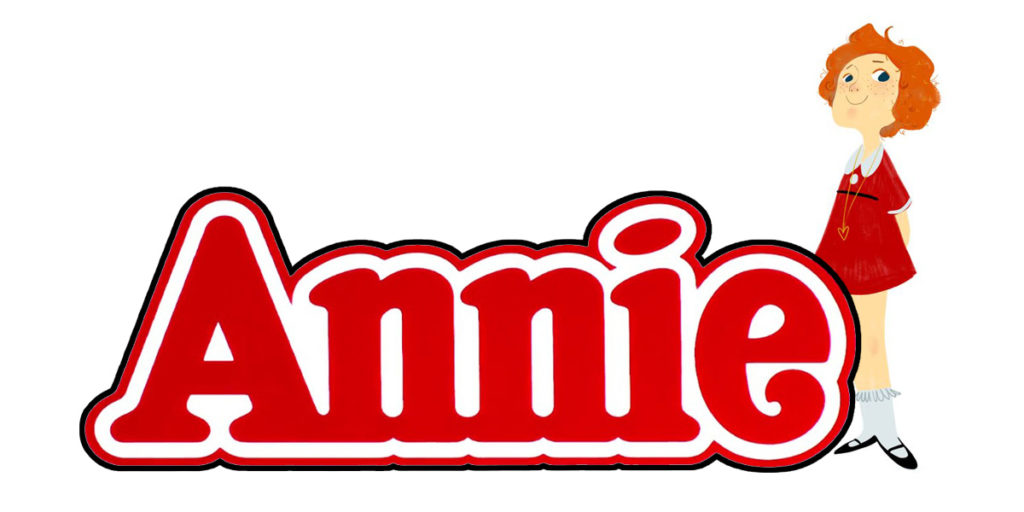


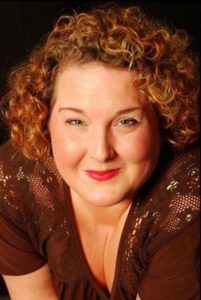
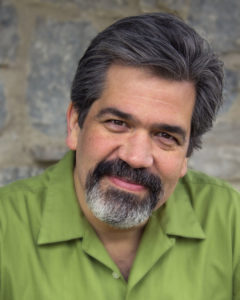
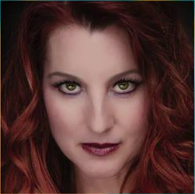

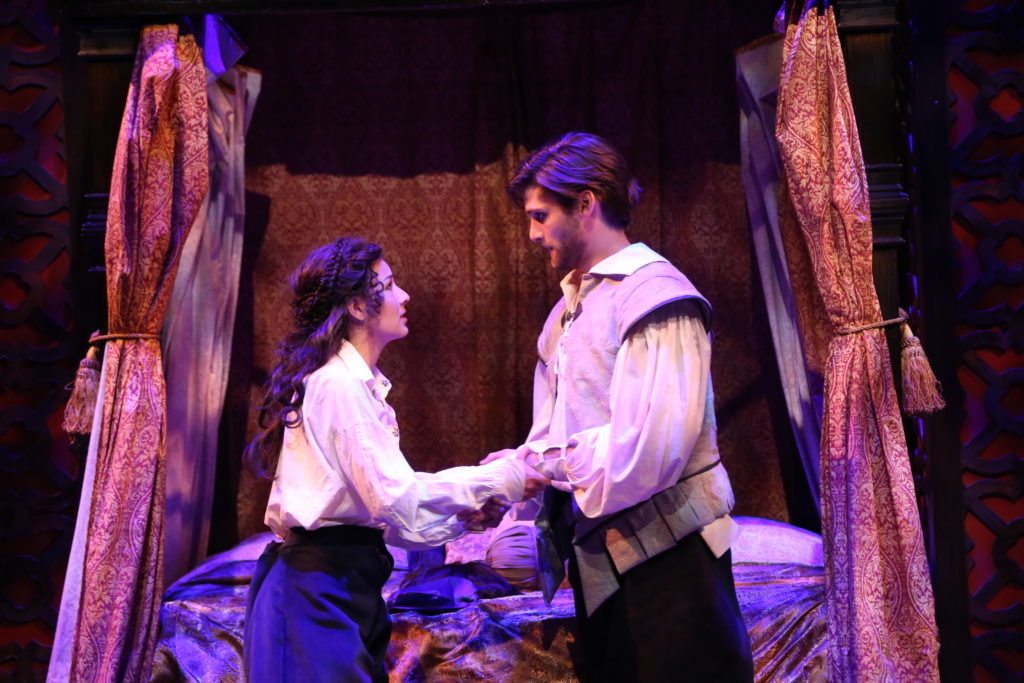
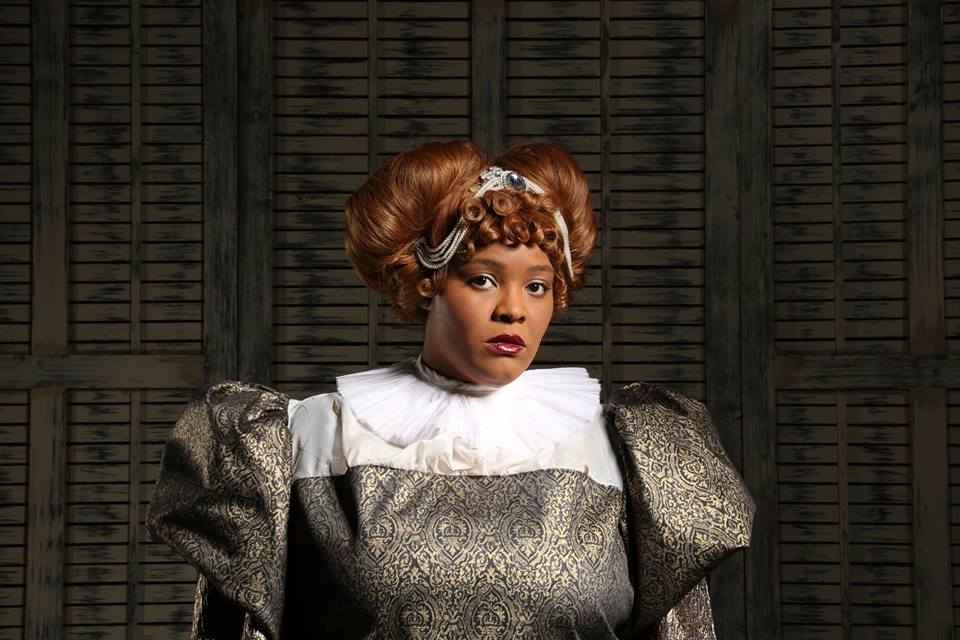 JHP: You’re playing Queen Elizabeth 1, so tell me…is it really true what they say? IS it good to be the Queen?
JHP: You’re playing Queen Elizabeth 1, so tell me…is it really true what they say? IS it good to be the Queen?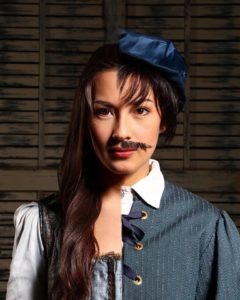 JHP: In Shakespeare’s time, it wasn’t unusual for male actors to portray female roles. In a bit of a gender flip, as Viola de Lesseps, you spend part of your time on stage in disguise in male drag. While there’s a large element of comedy, in that the audience is in on the gag, how did you prepare for the duality of the role(s)?
JHP: In Shakespeare’s time, it wasn’t unusual for male actors to portray female roles. In a bit of a gender flip, as Viola de Lesseps, you spend part of your time on stage in disguise in male drag. While there’s a large element of comedy, in that the audience is in on the gag, how did you prepare for the duality of the role(s)?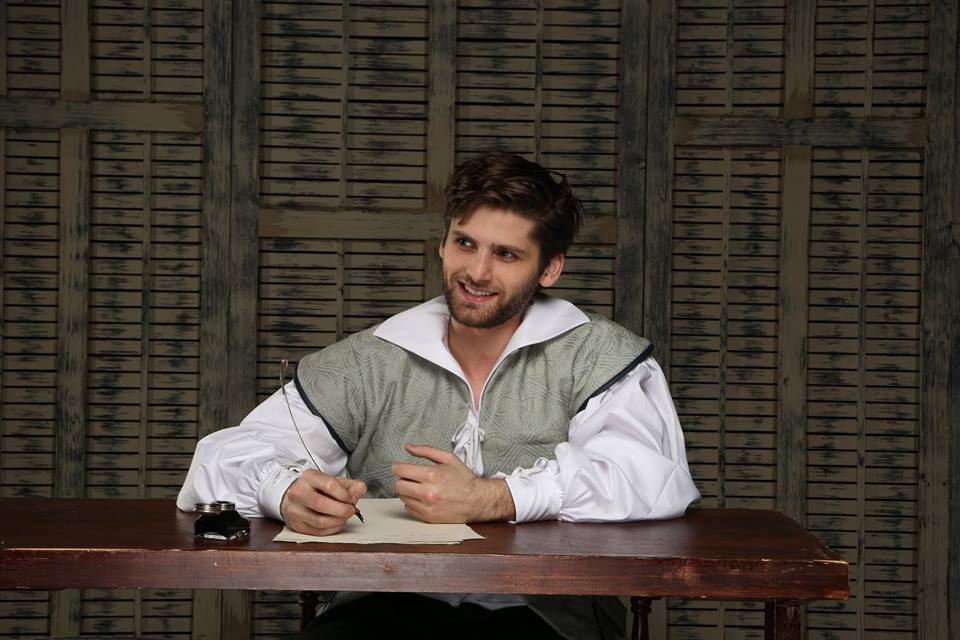 JHP: You’re playing Shakespeare opposite Cailen’s Viola. What’s the best aspect of having her as your leading lady?
JHP: You’re playing Shakespeare opposite Cailen’s Viola. What’s the best aspect of having her as your leading lady?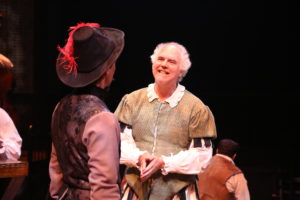 JHP: I understand you teach in the department of theatre and dance at Sewanee. How did being part of Nashville Rep’s Shakespeare in Love come about?
JHP: I understand you teach in the department of theatre and dance at Sewanee. How did being part of Nashville Rep’s Shakespeare in Love come about?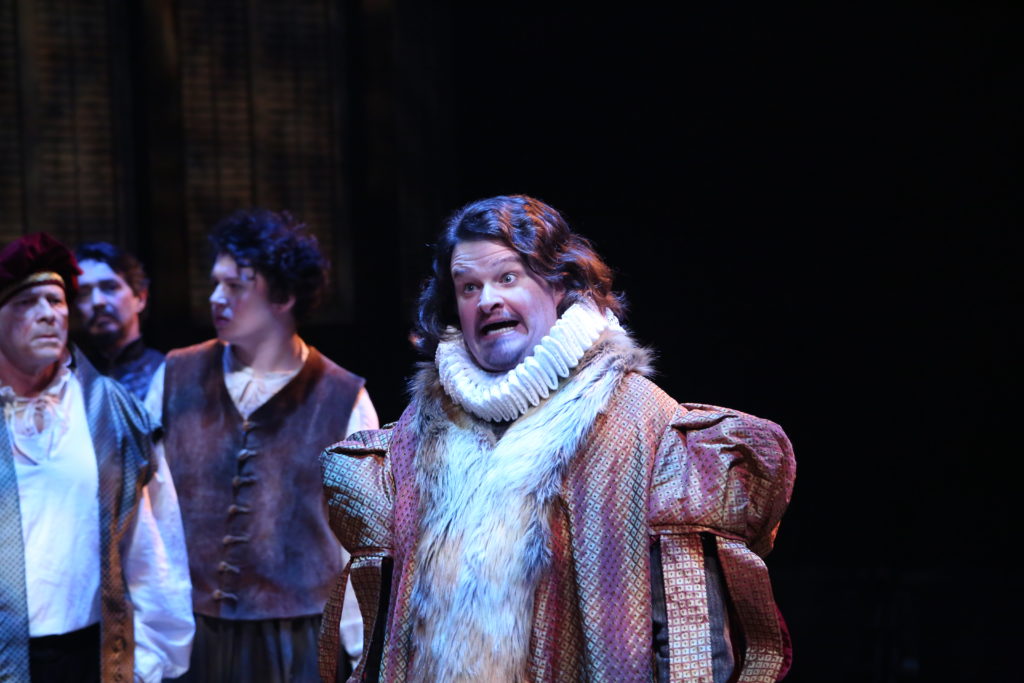 JHP: You’re playing Edmund Tilney, Master of the Revels. Am I dumbing it down to much to say he was the OG party planner?
JHP: You’re playing Edmund Tilney, Master of the Revels. Am I dumbing it down to much to say he was the OG party planner?
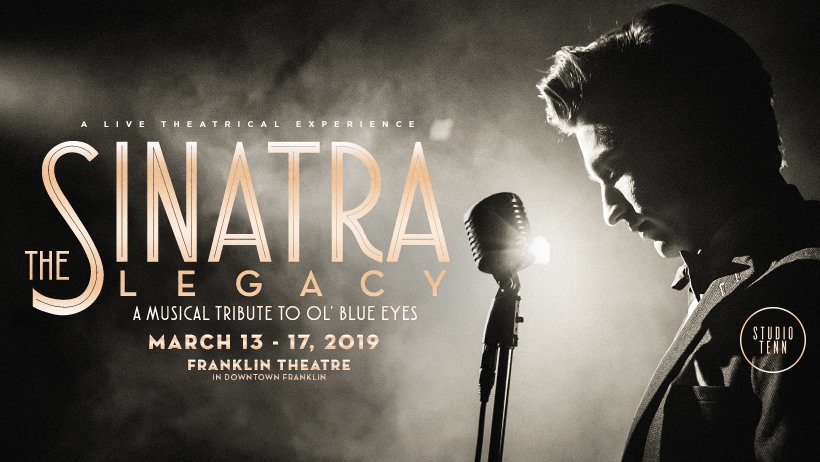
 RAPID FIRE WITH THE SINATRA LEGACY’S MATT GIRAUD
RAPID FIRE WITH THE SINATRA LEGACY’S MATT GIRAUD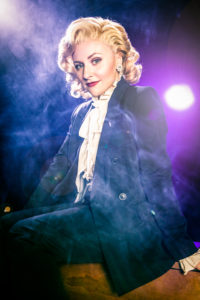 RAPID FIRE WITH THE SINATRA LEGACY’S MAGGIE RICHARDSON
RAPID FIRE WITH THE SINATRA LEGACY’S MAGGIE RICHARDSON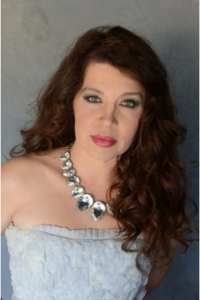 RAPID FIRE WITH THE SINATRA LEGACY’S JAIMEE PAUL
RAPID FIRE WITH THE SINATRA LEGACY’S JAIMEE PAUL RAPID FIRE WITH THE SINATRA LEGACY’S WILLIAM HALL
RAPID FIRE WITH THE SINATRA LEGACY’S WILLIAM HALL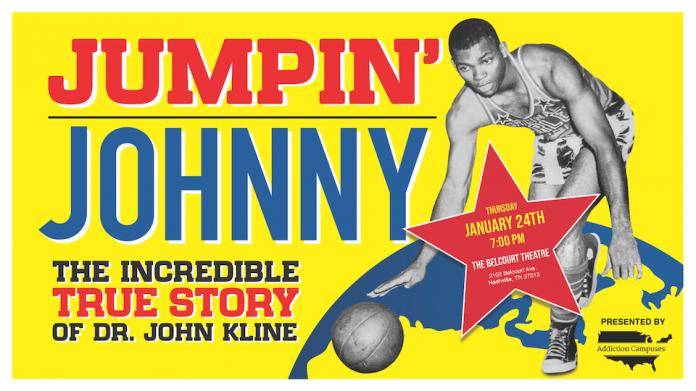
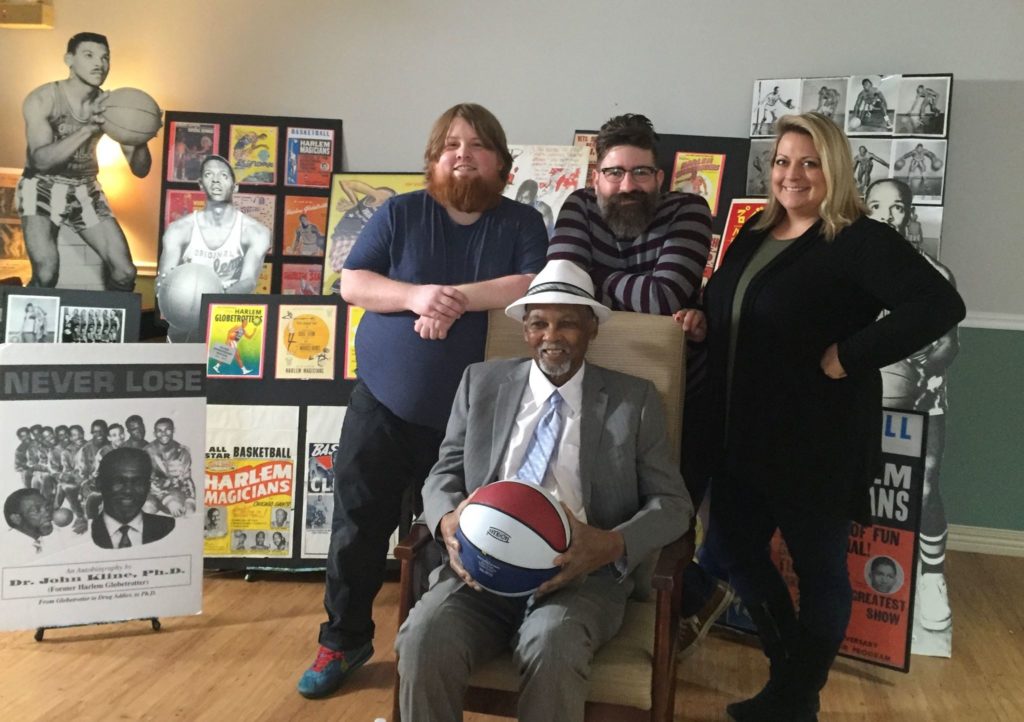
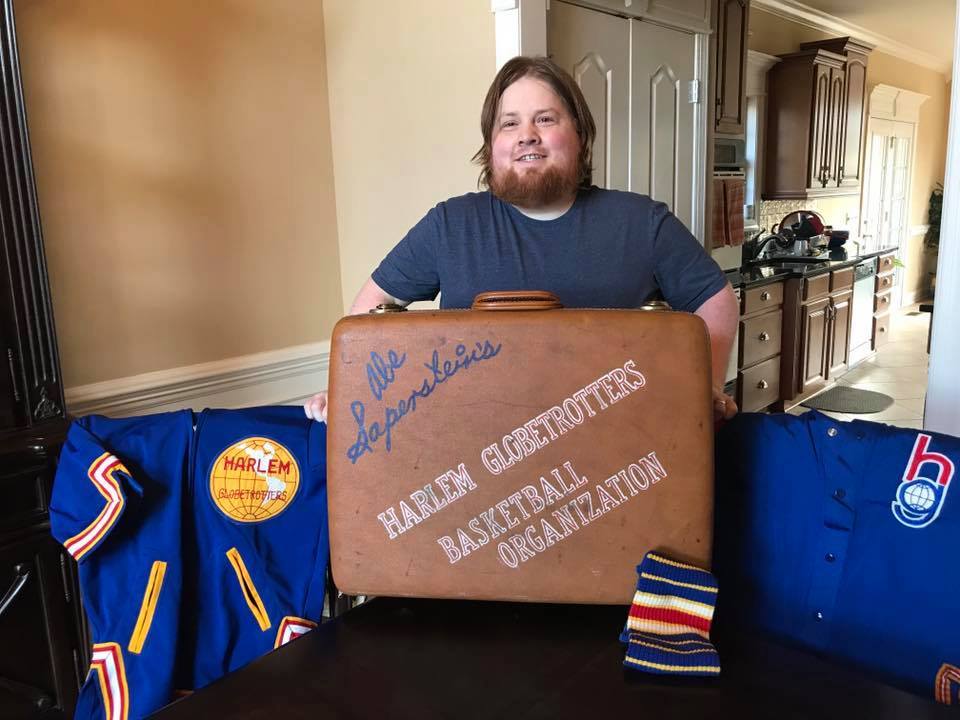
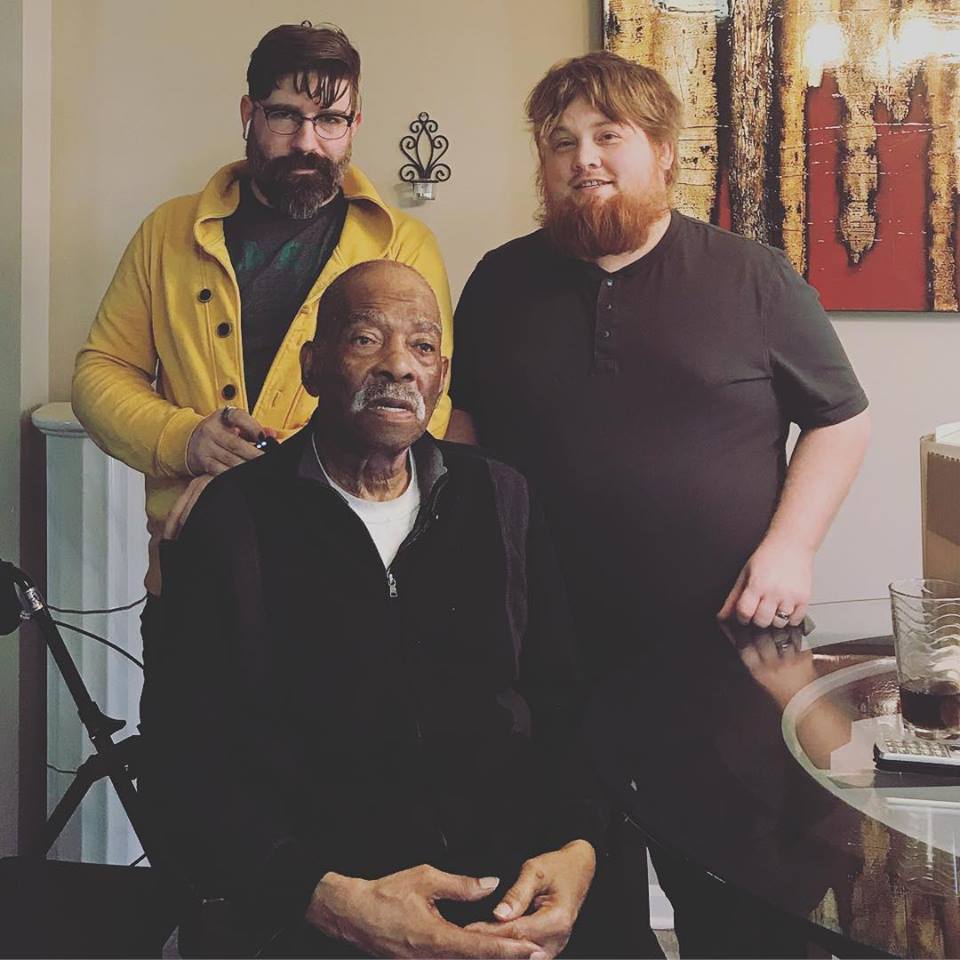
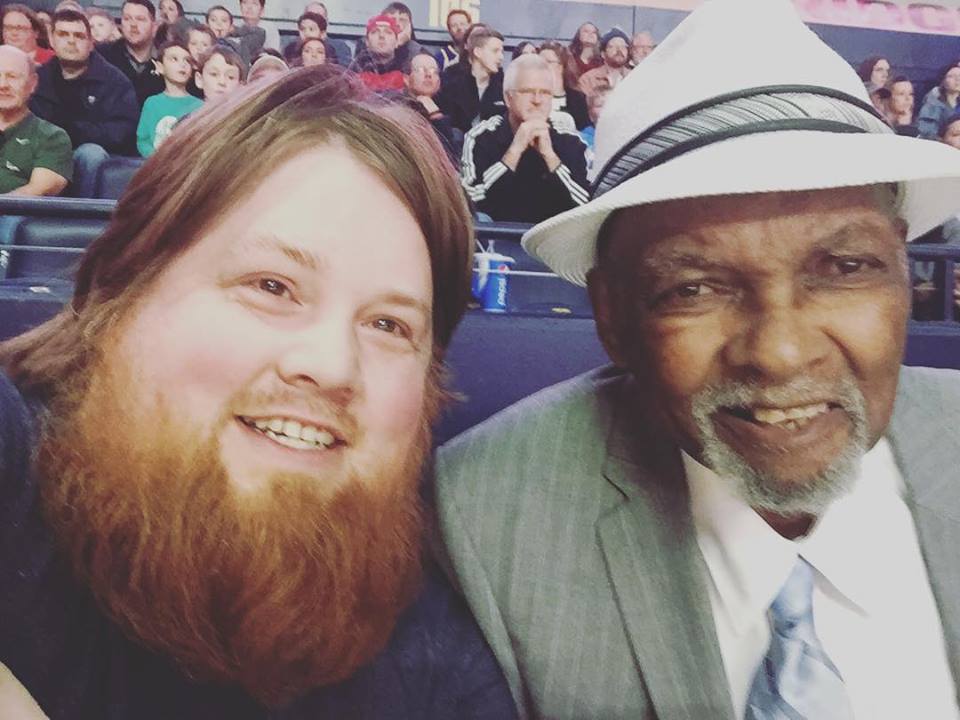
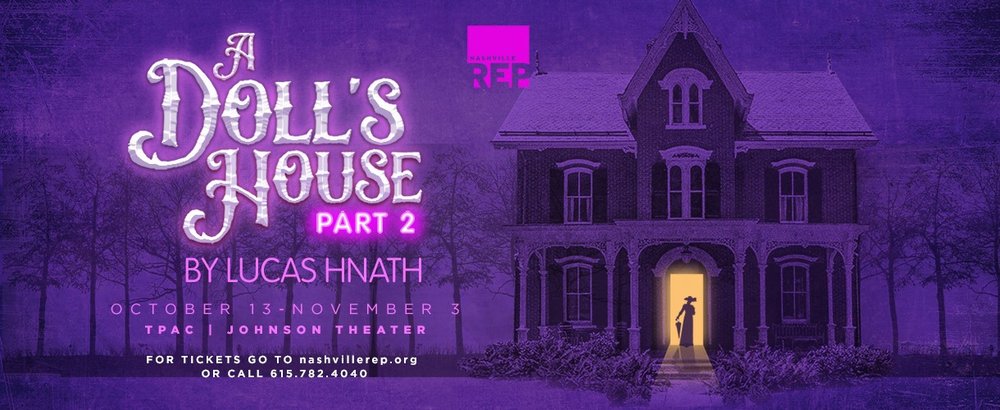
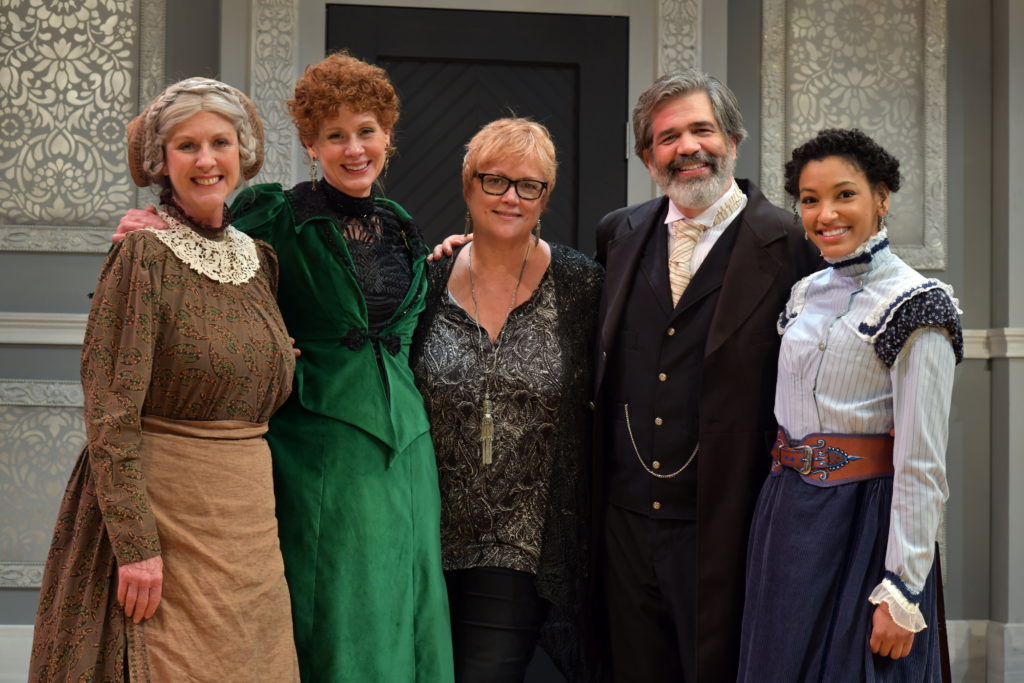
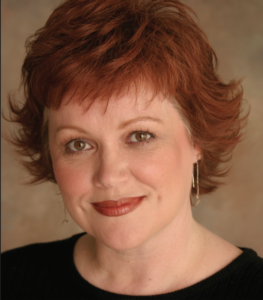 JHP: From a director’s standpoint, what attracted you to A Doll’s House, Part 2?
JHP: From a director’s standpoint, what attracted you to A Doll’s House, Part 2?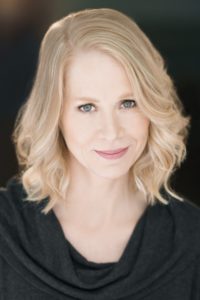 JHP: In the fifteen years that has passed between the story depicted in Henrik Ibsen’s original and Lucas Hnath’s A Doll’s House, Part 2, has A) Nora changed, or B) simply cultivated characteristics that were already present?
JHP: In the fifteen years that has passed between the story depicted in Henrik Ibsen’s original and Lucas Hnath’s A Doll’s House, Part 2, has A) Nora changed, or B) simply cultivated characteristics that were already present?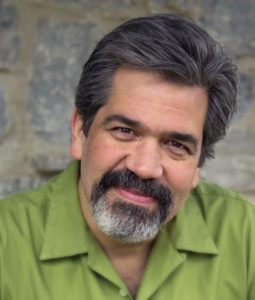 JHP: What can you tell me about Torvald?
JHP: What can you tell me about Torvald?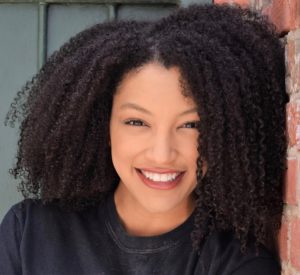 JHP: You play Emmy, one of Nora and Torvald’s three children she abandoned as depicted in the final scene of Henrik Ibsen’s original. Part 2 picks up fifteen years later. In finding your voice for Emmy, did you imagine certain mother/daughter circumstances that she missed that might have molded her current fiber?
JHP: You play Emmy, one of Nora and Torvald’s three children she abandoned as depicted in the final scene of Henrik Ibsen’s original. Part 2 picks up fifteen years later. In finding your voice for Emmy, did you imagine certain mother/daughter circumstances that she missed that might have molded her current fiber? JHP: What does the audience need to know about Anne Marie?
JHP: What does the audience need to know about Anne Marie?